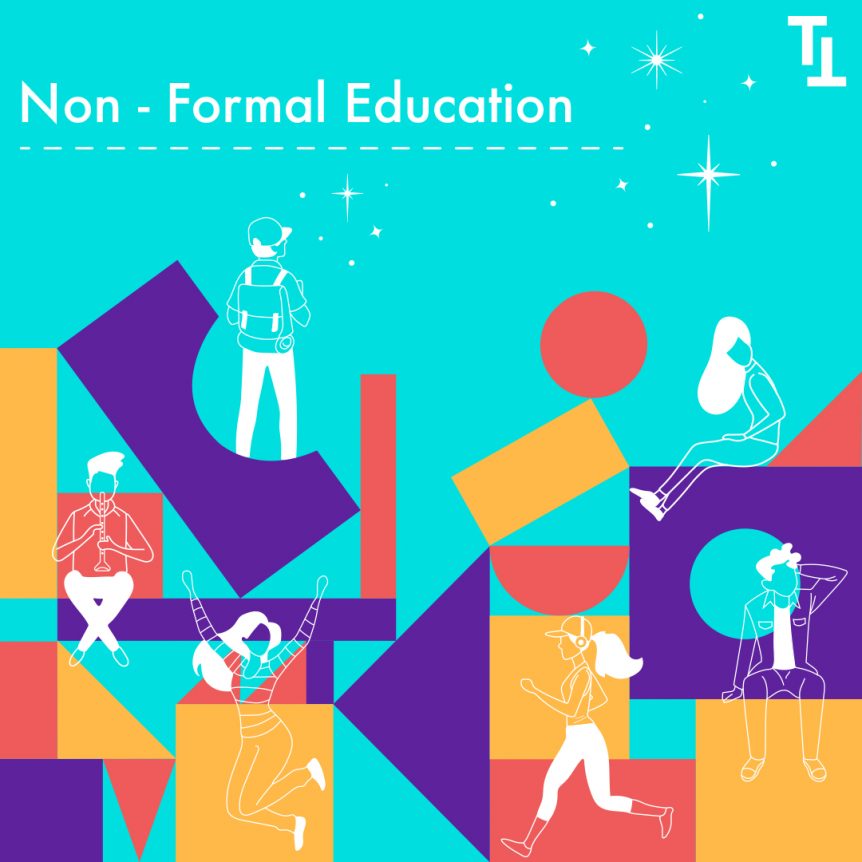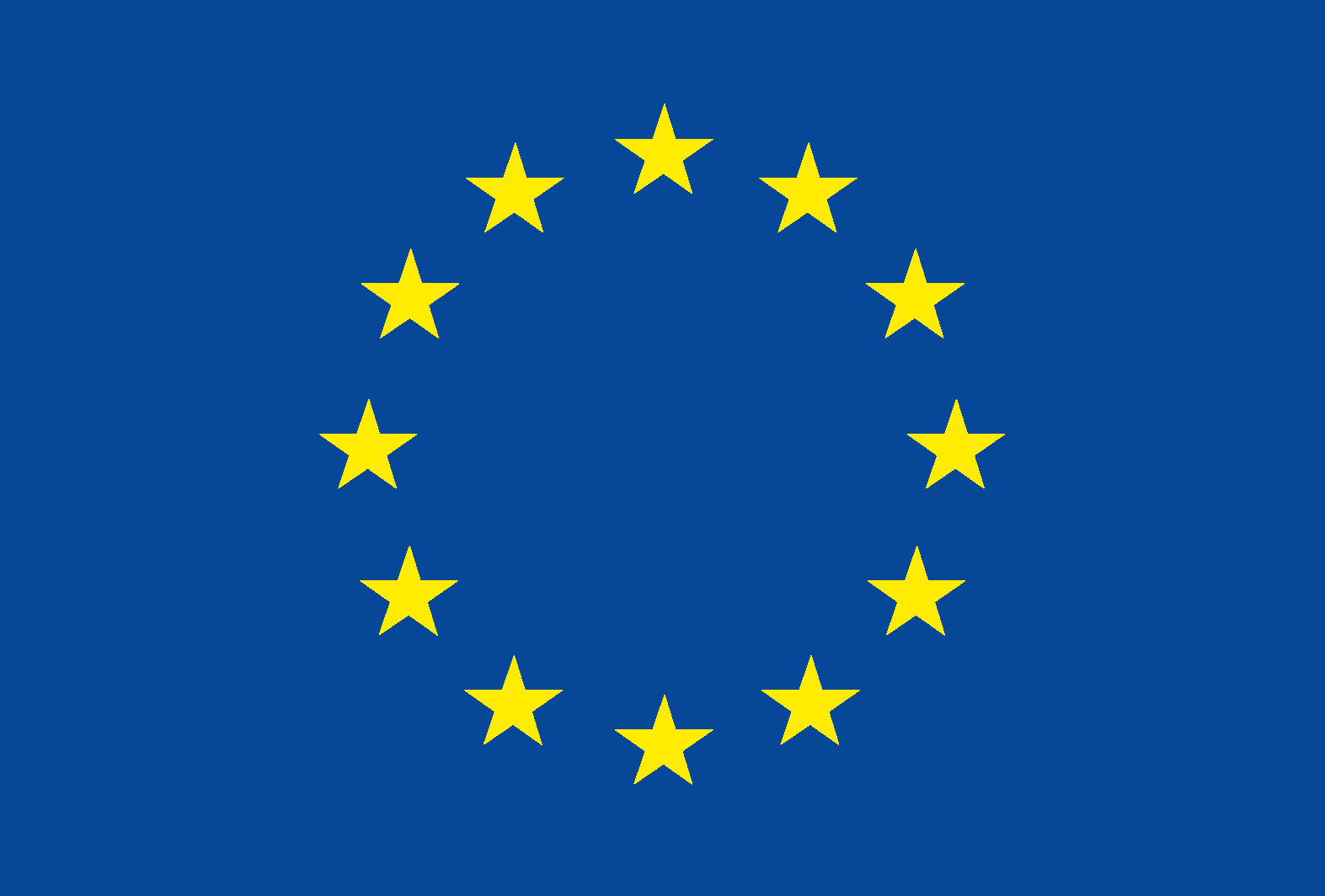This week I want to talk about non-formal education, what it is, why it is important, why it is useful and what support it receives from the EU.
Before we answer what is non-formal education it might be first easier to answer what is formal education. This is anything where there is a structured programme or curriculum with an assessed outcome. This is likely to be fixed in terms of what is delivered and is mostly the same content delivered in the same way regardless of individual participation or needs. This is usually assessed with some kind of exam or grading process and is the way in which most forms of official recognition and certification occur. If you have ever been to school, attended university, completed an apprenticeship or achieved your food hygiene certificate you have been through formal education of one kind or another.
Non-formal education is also not to be confused with informal education as this is where you learn yourself through living your life. This might be dedication to a hobby, reading books that interest you, watching the news or just talking to people you know. Informal education is the way in which you learn by doing through interest or activity through the course of your everyday life. This is not a planned structured activity but just something you do anyway in the course of your day.
So, what is non-formal education? Non-formal education is planned and structured unlike informal education but lacks the rigorous programmed content and strict assessment of formal education. Non-formal education will be the kind of activities you have done at youth clubs and community centres. It involves games and group projects. It can be drama or music or sports, camping or workshops or dance and certainly if you have attended any Rural Youth Europe events you have experienced some non-formal education first-hand. We believe strongly in the methods and benefits of non-formal education, and it is the preferred method of teaching of many youth organisations and institutions. In the next Together Thursdays blog I will go into this in more detail but for now I just want to talk more about what it is!
Non-formal education is participatory and voluntary. This means that it is about encouraging those involved to take part and to learn and engage through their own motivation with their own desire for learning. It is centred around the learner not curriculum, and the methods and outcomes can be tailored to the individual allowing them to learn and grow at the pace and with the techniques needed for them specifically. Participants choose to be involved in the activity and choose to engage because they want to, not because they need to complete a course or get a certificate. It is for the desire to learn and grow and develop skills that will benefit your life.
An important part of non-formal education is that it is inclusive and open to everyone. Often formal education is very selective. There are exams to get into universities, there are restrictions placed on who can go and certain knowledge is seen as accessible by the best or brightest and that having done badly at school means these doors are closed forever. Many people feel like academia is not for them or that they are not smart enough for a certain subject. The thing is though all knowledge is for everyone just like all art is for everyone. Your past circumstances in life, your past choices, your place of birth, or your previous interests should no more define what you are able to learn that whether you are allowed to enjoy your favourite song. Everyone deserves the chance to learn and discover and to understand about any subject. Non-formal education is about making knowledge accessible to all and helping people to understand because they want to understand. Are you really not smart enough for academia, or is that very specific method of teaching just not the way you learn most effectively? Maybe there is a different method tailored to you as a person taking your needs into account that will finally help you understand. That is what non-formal education is all about.
Non-formal education is learner-centred and organised on the needs of the participants. It is about giving the participants the tools and motivations they need to learn and can be flexible in methods depending on who is learning on each day.
Non-formal education is holistic and process orientated. This means it looks at the whole experience of learning, the whole subject you are trying to discover and the whole experience of the person learning. It does this by exploring a process through a method that the participants work through themselves to gain understanding. I am sure it is a problem many of you have experience sitting in a maths classroom listening to an obscure example of trigonometry with absolutely no idea how it fits into maths as a subject let alone how it fits into the real world, and just like that your motivation to learn is gone.
It is based on experience and action. The outcomes of non-formal education are often about learning life skills and engaging in active citizenship. It is about how to understand your right to youth participation and how to engage in that right. As such it is about how to practically understand and engage with democracy, what are the actions needed to proceed, what is the process to go through so the participants can develop the experience needed to do it for themselves.
One issue of non-formal education is that the outcomes can be hard to quantify and difficult to assess. It is often not recognised as an official method of teaching and more traditional systems of education used to rigorous grading and examination can struggle to understand the benefits and uses of non-formal education. Think though, how many times was it that putting that volunteering on your CV got you the job? Or going on camping trips when younger gave you an appreciation of nature and nature conservation? Or maybe attending a Rural Youth Europe event gave you a greater understanding of the diversity of Europe and a desire to stay in touch with new friends. It’s not easy to quantify appreciation and friendship but it is certain that they are worth having!
There are ways to be involved and ways of recognising and appreciating the non-formal education you have already done. Non-formal education is growing in popularity and recognition across Europe, and there are many EU and Council of Europe institutions that favour non-formal education methods. In the next Together Thursdays blog we will look at why this is, who these institutions are and what they can do for you!

This week’s blog was put together by John Gillon, Rural Youth Europe’s Project Manager. If you would like to discuss any aspect of the blog with John, please e-mail projects@ruralyoutheurope.com
This blog is part of the Together Thursdays project, co funded by the European Union.


